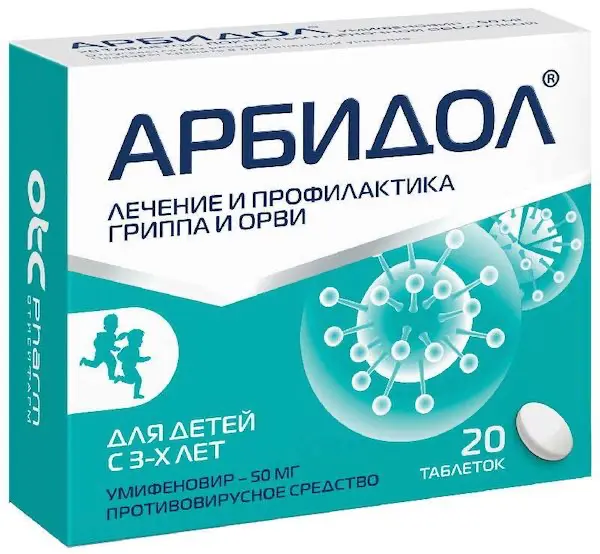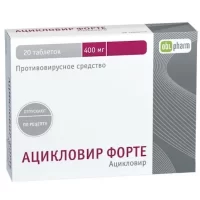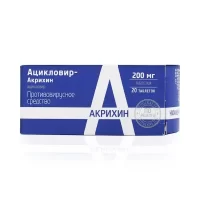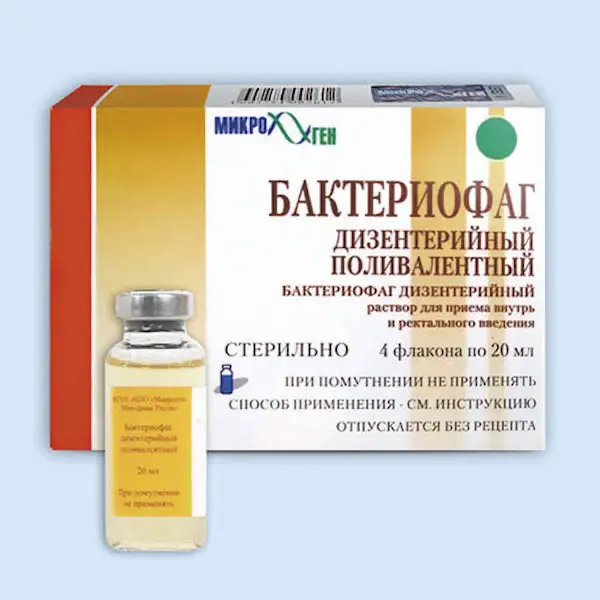Description
Arbidol Pharmacodynamics
Antiviral agent. Specifically suppresses in vitro influenza viruses A and B (Influ-enzavirus A, B), including highly pathogenic subtypes A(H1N1)pdm09 and A(H5N1), as well as other viruses – causative agents of acute respiratory viral infections (ARI) (Coronavirus (Coronavirus) associated with severe acute respiratory syndrome (SARS), rhinovirus (Rhinovirus), adenovirus (Adenovirus), respiratory syncytial virus (Pneumovirus) and parainfluenza virus (Paramyxovirus). By the mechanism of antiviral action it belongs to fusion inhibitors (fusion), it interacts with hemagglutinin of the virus and prevents fusion of lipid coating of the virus and cell membranes. It has a moderate immunomodulatory effect and increases resistance of the organism to viral infections. It has interferon-inducing activity: in tests on mice interferon induction was observed in 16 hours, and high titers of interferon were kept in blood up to 48 hours after injection. It stimulates cellular and humoral immune reactions: it increases the number of lymphocytes in blood, in particular the number of T-cells (CD3), increases the number of T-helpers (CD4) without affecting the level of T-suppressors (CD8), normalizes the immunoregulatory index, stimulates the phagocytic function of macrophages and increases the number of natural killer (NK-cells).
Therapeutic effectiveness in viral infections is manifested in reduction of duration and severity of the course of disease and its main symptoms, as well as in reduction of the frequency of development of complications due to viral infection and exacerbations of chronic bacterial diseases.
In treatment of flu or acute respiratory viral infections in adults, clinical trial showed that Arbidol® effect in adults is most expressed in acute period of disease and is expressed by reduction of terms of resolution of disease symptoms, decrease of disease severity and shortening of terms of virus elimination.
Therapy with Arbidol® results in higher rate of resolution of disease symptoms on the third day of therapy compared to placebo. In 60 hours after the therapy start, the resolution of all symptoms of laboratory confirmed influenza is more than 5 times higher than in the placebo group.
A significant effect of Arbidol® was found on the rate of elimination of influenza virus, which, in particular, was manifested by a decrease in the frequency of detection of RNA virus on the 4th day.
The drug is considered to be low-toxic (LD50 > 4 g/kg). It does not have any negative effect on the human body when administered orally in the recommended doses.
Indications
Prevention and treatment in adults and children: influenza A and B, other acute respiratory infections.
Complex therapy of acute intestinal infections of rotavirus etiology in children over 3 years.
Complex therapy of chronic bronchitis, pneumonia and recurrent herpetic infection.
Prevention of postoperative infectious complications.
Contraindications .
Hypersensitivity to umifenovir or any component of the drug, children under 3 years of age. The first trimester of pregnancy. Breast-feeding.
With caution.
Second and third trimesters of pregnancy.
Administration during pregnancy and breast-feeding.
Studies on animals have not revealed any harmful effect on pregnancy, embryo and fetal development, maternity and postnatal development.
Use of Arbidol® in the first trimester of pregnancy is contraindicated.
In the second and third trimesters of pregnancy Arbidol® can be used only for treatment and prophylaxis of influenza and in case when the expected benefits to a mother exceed the potential risk to a fetus. The benefit/risk ratio is determined by the attending physician.
It is unknown whether Arbidol® penetrates into the breast milk in women during lactation. If it is necessary to use Arbidol® it is necessary to stop breast-feeding.
Dosage and administration method
- Orally, before meals.
Single dose (depending on age):
Age A single dose of the drug
From 3 to 6 years old
50 mg (1 tablet)
6 to 12 years old 100 mg (2 pills)
Over 12 years of age and adults 200 mg (4 tablets)
Indication Treatment regimen - In children from 3 years old and adults:
Non-specific prophylaxis during epidemics of influenza and other acute respiratory infections in a single dose 2 times a week for 3 weeks.
Non-specific prophylaxis during direct contact with influenza and other acute respiratory viral infections in a single dose once a day for 10-14 days.
Treatment of influenza and other acute respiratory infections in a single dose 4 times a day (every 6 hours) for 5 days. - In children from 3 years old:
Complex therapy of acute intestinal infections of rotavirus etiology in a single dose 4 times a day (every 6 hours) for 5 days. - In children from 3 years old and adults:
Complex therapy of chronic bronchitis, pneumonia, herpetic infection in a single dose 4 times a day (every 6 hours) for 5-7 days, then a single dose 2 times a week for 4 weeks.
Prevention of postoperative infectious complications in a single dose 2 days before surgery, then on the 2nd and 5th day after surgery.
Administration of the drug is started from the moment of appearance of the first symptoms of influenza and other acute respiratory infections, preferably not later than 3 days from the beginning of the disease. - If after using Arbidol® during three days in treatment of flu and other acute respiratory viral infections the severity of symptoms, including high temperature (38 °c and more) remains, it is necessary to see a doctor to evaluate the validity of using the drug.
Use the drug only according to those indications, that method of administration and in those doses that are specified in the instructions. - During the treatment of flu and acute respiratory infections, concomitant symptomatic therapy is possible, including antipyretic drugs, mucolytic and local vasoconstrictors.





